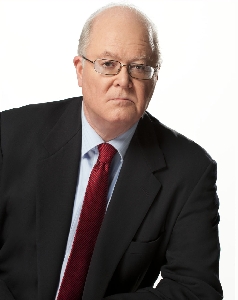Trump Warns of Drugs, Depression, Suicides

NEWS PROVIDED BY
Catholic League
March 30, 2020
NEW YORK, March 30, 2020 /Standard Newswire/ -- Catholic League president Bill Donohue (photo) comments on remarks made by President Trump on the social effects of coronavirus:
In his March 29 briefing on coronavirus, President Donald Trump alluded to the social consequences of not taking seriously the threat it poses. He mentioned the "massive" rates of drug use, depression, and suicide that might happen if he took a more relaxed approach to the disease.
Trump's critics have played their "fact check game," questioning how accurate his statement is. Even if we allow for hyperbole, Trump is right to call attention to these often neglected side effects associated with the stress and isolation engendered by a pandemic.
What Trump did not say is that one of the greatest tonics guarding against these conditions is religion; it is also true that those most at risk are non-believers. This is not a grey area: the studies are numerous and the findings are impressive. [The evidence is cited in my book The Catholic Advantage: Why Health, Happiness, and Heaven Await the Faithful.]
Dr. Harold G. Koenig is the nation's leading scholar in the study of well-being. He teaches psychiatry and medicine at Duke University, and is the director of Duke's Center for Spirituality, Theology and Health. He and his associates examined 278 studies on the relationship between religion and alcohol and drug use. They found that 86 percent of the studies concluded that the more religious a person was, the less likely he was to indulge. They also found that of the 185 studies on religion and drug abuse, the inverse relationship between religion and drugs was found 84 percent of the time.
Frank Newport is editor-in-chief of Gallup, and his surveys disclose that "very religious Americans are less likely to report that they have been diagnosed with depression than those who are moderately religious or nonreligious." Dr. Koenig and associates found that in 61 percent of the studies, religious Americans are less likely to be depressed than nonbelievers, and are more likely to recover at a faster rate from depression. Atheists, they learned, are more likely to be depressed. Worse, the secular care they choose leaves them more likely to be stuck in their condition longer than those who avail themselves of religious care.
Wayne State University sociologist Steven Stack did a study in which he rated twenty-five nations on a scale that measured religious commitment, and then sought to see if there was any relationship with suicide rates. He found that the more religious a person is, the less likely he is to commit suicide. Sociologist Rodney Stark looked at the data in America's largest metropolitan areas and found that the higher the church membership rate, the lower the suicide rate. Similarly, one review of more than 100 studies found that in 87 percent of them, religion was related to a lower incidence of suicide.
None of this is to suggest that people treat religion as some sort of mental-hygiene drug. Make no mistake about it, the beneficent effects of religious convictions and practice are dependent on their sincere application. But if they are, chances are that in times of stress and isolation such persons will fare much better than their nonbelieving counterparts.
It would be great if President Trump were to call attention to these findings. It might inspire many Americans to reconsider their personal relationship with God.
SOURCE Catholic League
CONTACT: 212-371-3191, pr@catholicleague.org
Related Links




 Sign Up to Receive Press Releases:
Sign Up to Receive Press Releases: